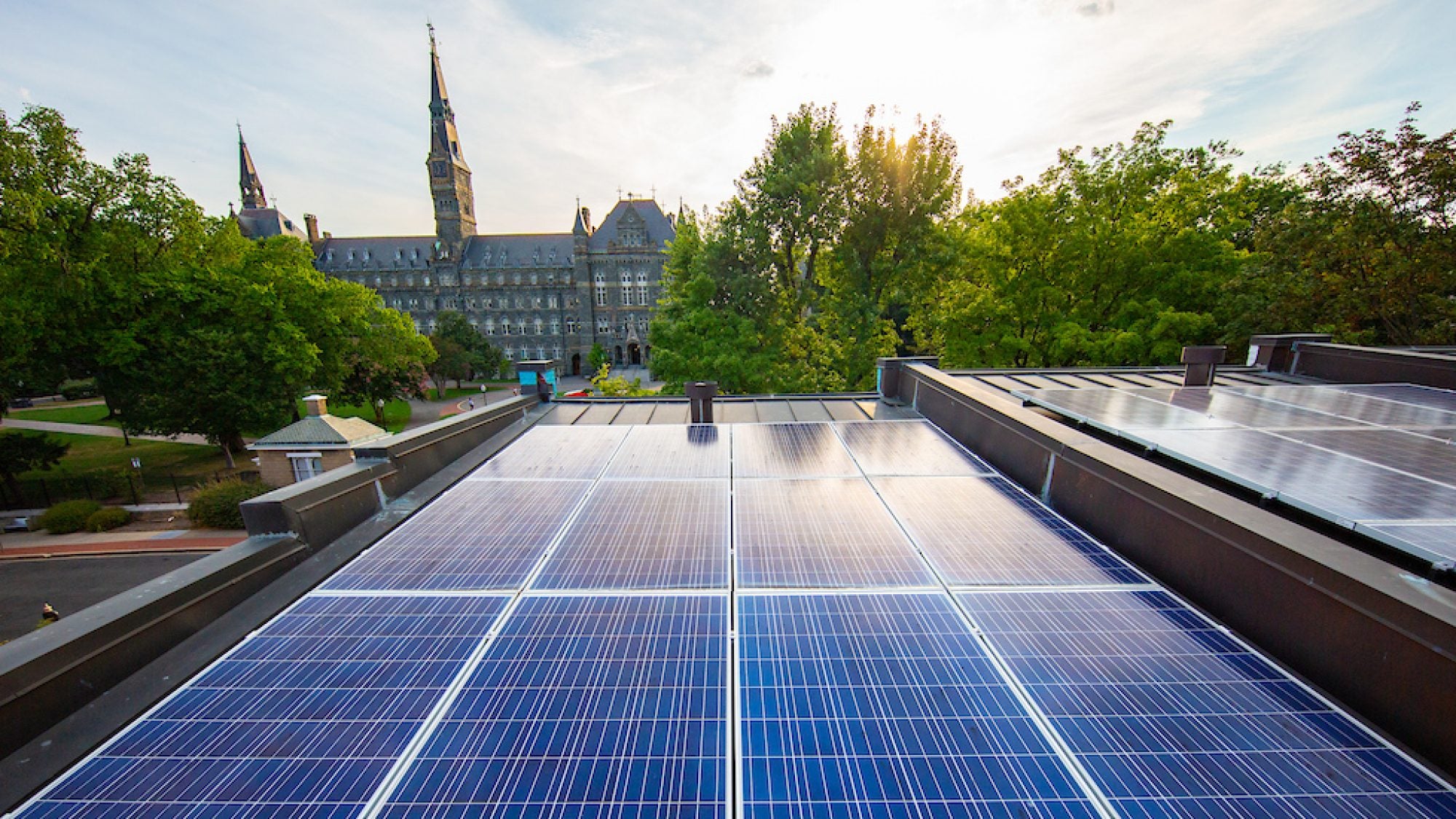“Protecting our environment and addressing climate change are defining issues of our time,” says Georgetown President John J. DeGioia. “At Georgetown, we are deeply committed to understanding and responding to these issues—promoting research and teaching on the environment and to taking steps as an institution to address our environmental impact.”
Georgetown’s partnership with ENGIE North America, a global leader in energy services and sustainability, will enable significant upgrades to the university’s major utility, distribution, monitoring and control systems across campus.
As a result, the university could see a reduction of at least 35% in its energy use intensity – energy per square foot per year – by the end of the decade while generating operational efficiencies and creating new resources for increased sustainability measures, education and research.
Additionally, the partnership will help Georgetown achieve its sustainability goals of becoming carbon neutral and water positive by 2030 and achieving “100% renewable power” by 2035.
Record of Commitment
Geoff Chatas, senior vice president and chief operating officer at Georgetown, highlights how the new agreement builds upon the university’s previous sustainability-related commitments.
“After committing to divest from fossil fuels and launching a power purchase agreement that will ensure that two-thirds of the university’s electricity needs will be sourced through solar power, this partnership further enhances our ambitious sustainability goals,” Chatas says.
Last year, Georgetown’s board of directors adopted a policy allowing investments that target a market rate of return in renewable energy, energy efficiency and related areas while freezing new endowment investments in companies or funds whose primary business is the exploration or extraction of fossil fuels.
This past fall, the university entered into a 15-year power purchase agreement that allows Georgetown to annually buy 100,000 megawatt-hours of electricity from 11 existing solar plants.
(Read more about the divestment from fossil fuels and sourcing two-thirds of the university’s energy through solar power.)
‘Becoming a Model’
“We are excited to accelerate our progress toward aligning with the U.N. Sustainable Development Goals, integrating sustainability across our functional areas and becoming a model for how universities and other complex organizations can strengthen their sustainability efforts,” Chatas adds.
Helping guide this process, Georgetown faculty members, including the Faculty Task Force to Explore Energy Partnerships and the Advisory Committee on Business Practices, provided knowledge and insights.
ENGIE’s responsibility will involve “the enhancement, operation and upkeep of the systems that heat, cool and distribute power” to Georgetown’s DC-area campuses.
Through the 50-year partnership agreement with ENGIE, which goes into effect July 1, the university will retain facilities ownership with decision-making authority over any capital improvements.
Current utilities employees whose positions are affected by the new agreement can choose to work for ENGIE or maintain employment with Georgetown
‘Innovative Partnership’
Lori Baldwin, vice president of planning, facilities management and corporate partnerships, said that she and her team “look forward to engaging in the work of this innovative partnership.”
“Under the partnership, we will be able to immediately enhance the energy efficiency of buildings across campus through the implementation of smart metering technologies and the commencement of a geothermal project on Healy Lawn that takes advantage of stable temperatures below the earth to enhance energy efficiency,” Baldwin says.
Furthering the university’s commitment to sustainability, Georgetown will launch a search for a vice president of sustainability. Lisa Belokur, associate vice president of facilities operations, is serving as the leader of the office in the interim.
Learn more about Georgetown’s sustainability efforts, including climate change action, LEED certification commitment and fossil fuel divestment.
